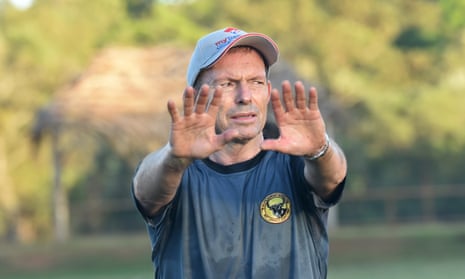Tony Abbott, the Australian prime minister, has spent the week in the far north of the country, fulfilling his commitment to spend time each year with Indigenous communities. The accompanying pack of fellow ministers and press peppered him with questions each day, but even without them he would have been hard-pressed to put his political troubles behind him. His Liberal-National Coalition government fell behind in the polls remarkably early in its life, and has remained there for 16 months. The next election is due by January 2017, and Mr Abbott’s numbers are getting worse. He has already faced one party vote of confidence and a perilous byelection looms in Western Australia.
Among several missteps by the Abbott government, perhaps the most serious is on marriage equality. This issue could present an opportunity for a smart centre-right government to put itself on the progressive side of history by swimming with the global tide of gay rights, as David Cameron has chosen to do. About 70% of Australians, and many senior figures in Mr Abbott’s cabinet, back marriage equality; most Coalition voters appear to do so too. Labor, which has its own splits on the issue, has now sharpened its support, with the former prime minister Julia Gillard a notable latecomer this week.
Yet Mr Abbott remains staunchly opposed, while wobbling about his preferred strategy for opposition. This week he acknowledged it was “OK to be gay” while still advocating “the traditional position that marriage is between a man and a woman”. The prime minister, who was a seminarian, evidently has his views reinforced by his Catholicism; but he is unswayed by his sister Christine Forster, who wants to marry her female partner.
Until recently, Mr Abbott insisted the issue was best left to parliament. Yet with momentum behind gay marriage boosted by the vote in Ireland, Australian campaigners calculated they were in touching distance of winning a free vote in parliament; at which point Mr Abbott switched tack. After engineering a controversial private debate of Coalition MPs to settle the position, he called for a vote of the people at some unspecified point in the next parliamentary term, evidently hoping that somehow his view could prevail that way. The practical terms of his plan for such a vote remain uncertain. But Mr Abbott’s handling has allowed the issue to mutate from one of principle to one of party management.
Beyond Canberra, the marriage issue is both more simple and more vital. Australians have been consistently in favour for seven years. The corporate and business world is onside. In the meantime there are thousands of gay Australians who want to marry but cannot, and whose civil rights and equality are being denied. They and their supporters see the US, the UK, New Zealand and Ireland celebrate such commitments. Yet Australia, with all its similarities, and in spite of its “fair go” ethos about which Coalition politicians so often speak, remains held back by Mr Abbott’s reluctance to embrace what others see as a basic issue of justice and equality.
